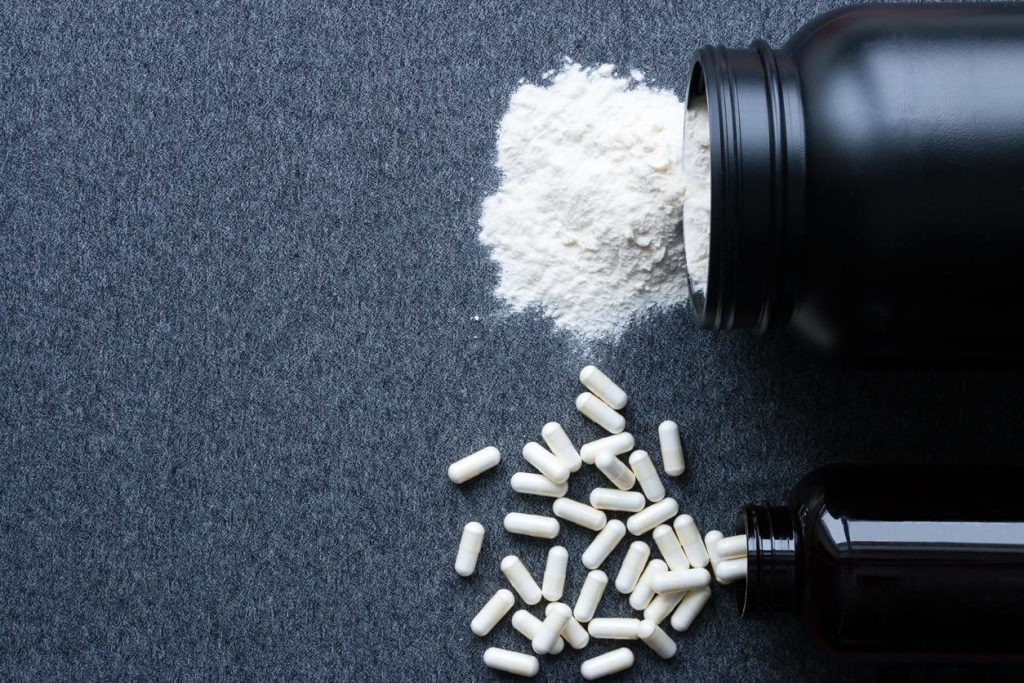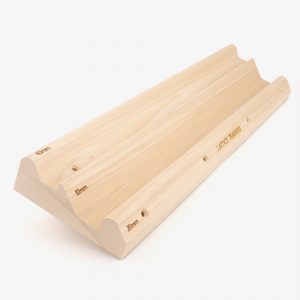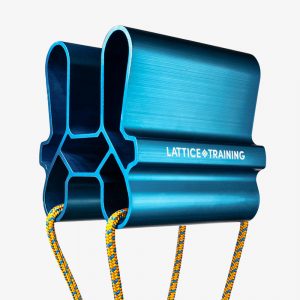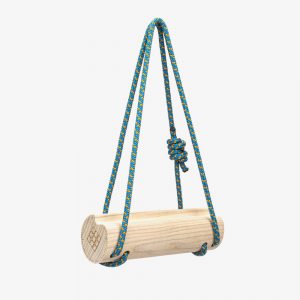What is Creatine? Does It Work?

https://latticetraining.com/app/uploads/2021/02/creatine-2.mp4
Creatine is a supplement which has huge amount of research behind it, and is a subject we get asked about frequently so Maddy thought it would be a good idea to do a bit of a deep dive for her coach catch up to see what the research has to say about it in regards to climber and climbers’ performance. And what she discovered was really interesting….
Creatine is a supplement for a compound which is found in muscles. It allows for an increase storage of fuel in the PCr system allowing for higher levels of power and strength to be produced. One of the main reasons that climbers don’t use creatine is due to the fear of the weight that some people gain when loading with creatine. But are these concerns valid? Well let’s see some of the benefits first and see if they might outweigh the potential drawbacks
Benefits of creatine
– Increased work capacity
– Improved cell signalling
– Improved cell hydration
– Decreased protein breakdown
– Increased strength adaptation with resistance training
– Increased fat-free mass
– Improved muscular endurance
– Improved anaerobic performance
– Some studies also show an increase in cognitive function, which could be extremely useful for all athletes in what can be quite a complex sport.
– Creatine may improve short term memory and intelligence/reasoning in healthy individuals.
So there are quite a few benefits to supplementing with creatine!
The most spoken about reason that climbers don’t use creatine is due to the weight gain, but is weight gain such a bad thing? (I realise that that topic probably deserves it’s own post, but here we’re just talking in the context of creatine 
A recent double blind placebo controlled study found that after three month of creatine use, test subjects showed no significant increase in body water. The creatine group showed greater gains in total body mass and fat free mass.
So it’s not always water! Sure it doesn’t negate that weight hasn’t been gained, but the real question should be is that weight useful. And as long as your training has been specific and you’ve increased muscle mass and strength in muscles which are functional to your sport, then yes it is useful!
A common method used for weight dependant sports is to cycle off creatine prior to a performance phase, which can be a useful way of avoiding the fear of weight gain, although in climbing we’ve seen that people often see an increase in performance and begin with the aim of cycling off it, but then remain on it as they experience the benefits.
Considerations for climbers:
- The first consideration would be whether you are going to load or micro dose. Micro dosing can be a good way of ensuring that if there is some weight gain that it is minimised and is more gradual as muscle saturation is reached slower. This means that if you’re doing exercises like max hangs, then you can reduce the risk of injury. This may be less of a concern with more experienced athletes as they will have a better grasp of how an exercise should feel and may adjust accordingly.
- Creatine loads in all muscles, so you should be wary of training areas such as lower body if you don’t want to build too much muscle in these areas.
- ‘Creatine pump’ – While there isn’t any evidence for this, there are many anecdotal reports of increased pump due to supplementing with creatine so it’s worth considering. There are some theories as to why this might be, (reduction in repercussion due to hypertrophy, increase in strength leading to over-gripping, or there not being enough rehydration causing a reduction in blood plasma volume) but as of yet we aren’t entirely sure.
- Ultimately if you are going to supplement with creatine you should explore option and monitor how you react to supplementation. If respond quickly with weight gain, monitor your climbing performance, and reduce fingerboard loads. If you are micro dosing and aren’t feeling any difference, perhaps gradually increase the dosage. Perhaps if you see a great increase in performance and little to no increase in weight, then it would make sense to stay on it during a peak phase.
- You should take your goals and history into consideration with which approach to take. (cycling, micro dosing, loading, etc)
- The best place to start is during a base phase, as that way you always have the option of cycling off it during certain phases.
- It’s all worth noting that some people experience GI distress from supplementing with creatine, to avoid this it’s best to not take on an empty stomach.
Overall we think it’s definitely worth experimenting to see if it’s right for you!
removed text storage block —ignore 👇
Some people don’t feel much change when beginning to take creatine, this may due to a few factors. Here are just a few reasons why that might be:
– Higher base level of creatine in diet (this could be due to diet, or simply due to their genetic makeup)
– Low level of type II muscle fibres and fat free mass.
– Poor absorption of supplement. Mixing with carbohydrate can help to help uptake due to insulin spike, or mixing in a warm glass of water.
It’s also worth noting how you measure response, because simply looking at how much weight is gained isn’t the bet picture of if the supplement is benefiting you, and some of the benefits are very hard to measure and also take longer to become noticeable (neurological benefits, anti-inflammatory benefits, immune system, myostatin suppression).
There are also some differences between men and women’ responses to creatine due to a number of factors. Women tend to naturally have more creatine within their bodies already anyway, so supplementing may not have as large of an effect on them as men, and also have a lower fat free mass. So this may not be that surprising. However, female athletes have shown increase adaptations to strength training with creatine supplementation compared to a placebo, and the same has also been shown in the postmenopausal population.






I recently started experimenting with creatine and I’ve been amazed by the effects on body composition and muscle mass in a short space of time. But having just been on a climbing holiday, I think I ran into the unproven ‘creatine pump’. It’s not scientific but I’ve changed nothing else in my regime recently and I was getting noticeably more pumped on routes during this trip so it could be the creatine. I want to keep using it for all the other benefits but I can’t imagine the pump will help me progress when sport season comes back around. Is there any research into how timing of the dose might impact that? I’ve been taking 4g in a morning